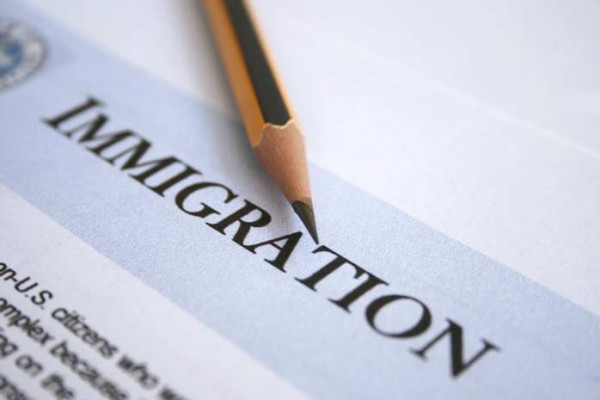 Trump-era ‘public charge’ rule denied legal status to all immigrants who used or might use social welfare programs
Trump-era ‘public charge’ rule denied legal status to all immigrants who used or might use social welfare programs
The Biden administration is all set to reverse a Trump-era “public charge” rule, which denied permanent residency to immigrants who used public assistance programs or were suspected of using them in the future.
A new hardline public charge rule introduced by Trump in 2019 “was not consistent with our nation’s values,” Department of Homeland Security (DHS) Secretary Alejandro N. Mayorkas said in a statement Thursday.
“Under this proposed rule, we will return to the historical understanding of the term ‘public charge’ and individuals will not be penalized for choosing to access the health benefits and other supplemental government services available to them,” he said.
Under the proposed rule, DHS proposes to define “likely at any time to become a public charge” as “likely to become primarily dependent on the government for subsistence.”
Read: Supreme Court to hear challenge to Trump-era public benefits rule (February 22, 2021)
The new proposed rule would provide fair and humane treatment for noncitizens requesting admission to the United States or applying for lawful permanent residence from within the United States, DHS said.
Under the proposed rule DHS would not consider noncash benefits such as food and nutrition assistance programs including the Supplemental Nutrition Assistance Program (SNAP), the Children’s Health Insurance Program, most Medicaid benefits (except for long-term institutionalization at government expense), housing benefits, and transportation vouchers.
DHS would also not consider disaster assistance received under the Stafford Act; pandemic assistance; benefits received via a tax credit or deduction; or Social Security, government pensions, or other earned benefits.
By law, many categories of noncitizens are exempt from the public charge ground of inadmissibility and would not be subject to the proposed rule, DHS noted.
Some of these categories are refugees, asylees, noncitizens applying for or re-registering for temporary protected status (TPS), special immigration juveniles, T and U nonimmigrants, and self-petitioners under the Violence Against Women Act (VAWA).
Under the proposed rule, if a noncitizen received public benefits while in an immigration category that is exempt from the public charge ground of inadmissibility, DHS would not consider the noncitizen’s past receipt of such benefits as part of any future public charge determination.
However, following public benefits would continue to be taken into account when making a public charge inadmissibility determination: Supplemental Security Income (SSI); Cash assistance for income maintenance under the Temporary Assistance for Needy Families (TANF) program; State, Tribal, territorial, and local cash assistance for income maintenance; and Long-term institutionalization at government expense.
In 2019, the Trump administration expanded the interpretation of the term “public charge” and the types of public benefits considered.
It caused many noncitizens to be fearful of accessing benefits that Congress intended them to have, including noncitizens who are not subject to the public charge ground of inadmissibility, such as children in mixed-status households, DHS noted.
Read: Biden Rule Could Help Prevent Revival of Key Trump Immigration Policy (February 17, 2022)
With the 2019 public charge rule vacated, DHS is now undertaking an open and fair rule making process to establish a new regulation, the agency said inviting comments from the public.
After coming to power, the new Biden administration said it would no longer defend the Trump-era rule in court, where plaintiffs had argued that it illegally discriminated against low-income immigrants.
In November 2020, a federal judge agreed. However, a coalition of conservative state attorneys general has challenged the Biden administration in court to potentially push the case to the Supreme Court.



